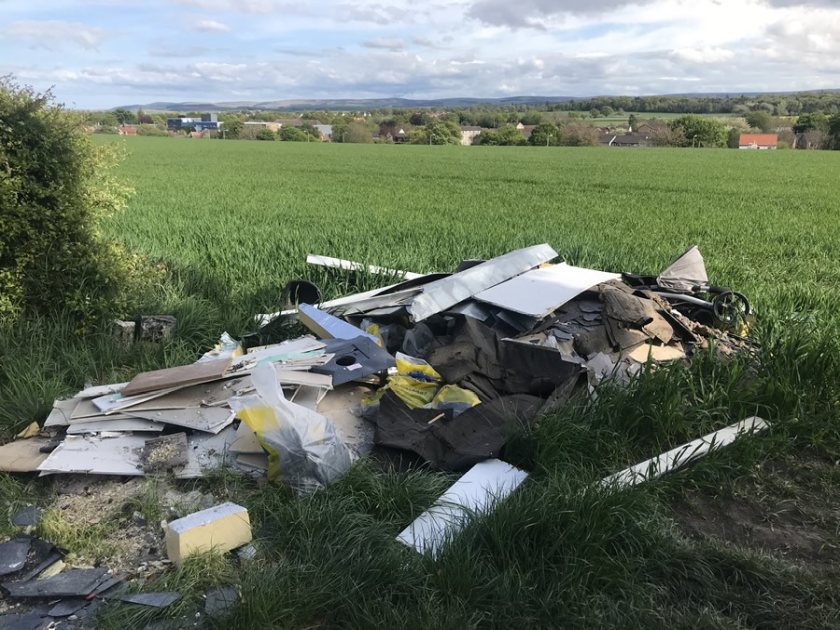
The NFU has called for tougher punishments for fly-tippers as figures show the number of waste crime incidents rose significantly in the previous 12 months.
New Defra figures show the number of fly-tipping incidents in England rose to 1.13 million, an increase of 16% on the previous 12 months.
At the same time, the number of fixed penalty notices and fines handed out is down year-on-year.
The NFU said adequate punishments were needed to deter waste criminals, as the crime continued to devastate farming businesses and rural communities.
It said government, local authorities, police and the Environment Agency needed to work better together on sharing information to ensure more offenders were prosecuted.
The union's Deputy President Stuart Roberts called the latest government figures 'incredibly disappointing'.
"It also confirms what we heard from our members during the first lockdown that fly-tipping incidents spiralled out of control, particularly when waste and recycling centres closed.
“Fly-tipping continues to plague the lives of many of us. It’s not just the odd bin bag but old kitchen appliances, sofas and industrial-scale amounts of rubbish, such as builder’s rubble and hazardous materials.
"This affects farmers working hard to produce food and care for the environment, but it also takes a huge toll emotionally and financially and impacts on mental health."
As a start, the government should 'properly punish' those offenders caught dumping waste illegally, such as issuing punitive fines, Mr Robert said.
He added it was crucial for the police, government agencies and local authorities to work more closely together to tackle the problem by sharing information.
“There is also a role for all of us in our own homes to recycle more and dispose of our waste responsibly," Mr Roberts added.
"Better education for householders about legal obligations when disposing of rubbish can help make people aware of their responsibilities.”
The Country Land and Business Association (CLA), which represents around 28,000 rural businesses, believes the government's figures only tell half of the story.
The vast majority of fly-tipping incidents occur on privately-owned land, the group noted, painting an even more damaging picture of the financial burden fly-tipping brings.
One landowner, who is also a member of the CLA, said he was so badly affected by one incident that he faced a bill of over £100,000 to clear it up.
The rural group said this highlighted the need to change the current fining and imprisonment laws, which "are not enforced and do not deter criminals".
Mark Tufnell, president of the CLA, said: “These figures do not tell the full story of this disgraceful behaviour which blights our beautiful countryside.
“Local authorities tend not to get involved with clearing incidences of fly-tipped waste from private land, leaving the landowner to clean up and foot what is often an extortionate bill.
"The government figures do not reflect the true scale of the crime because increasing reports of fly-tipping on private rural land are not included, coupled with the country plunged into lockdown.
"Fly-tipping continues to wreck the lives of many of us living and working in the countryside – and significant progress needs to be made to stop it.”
